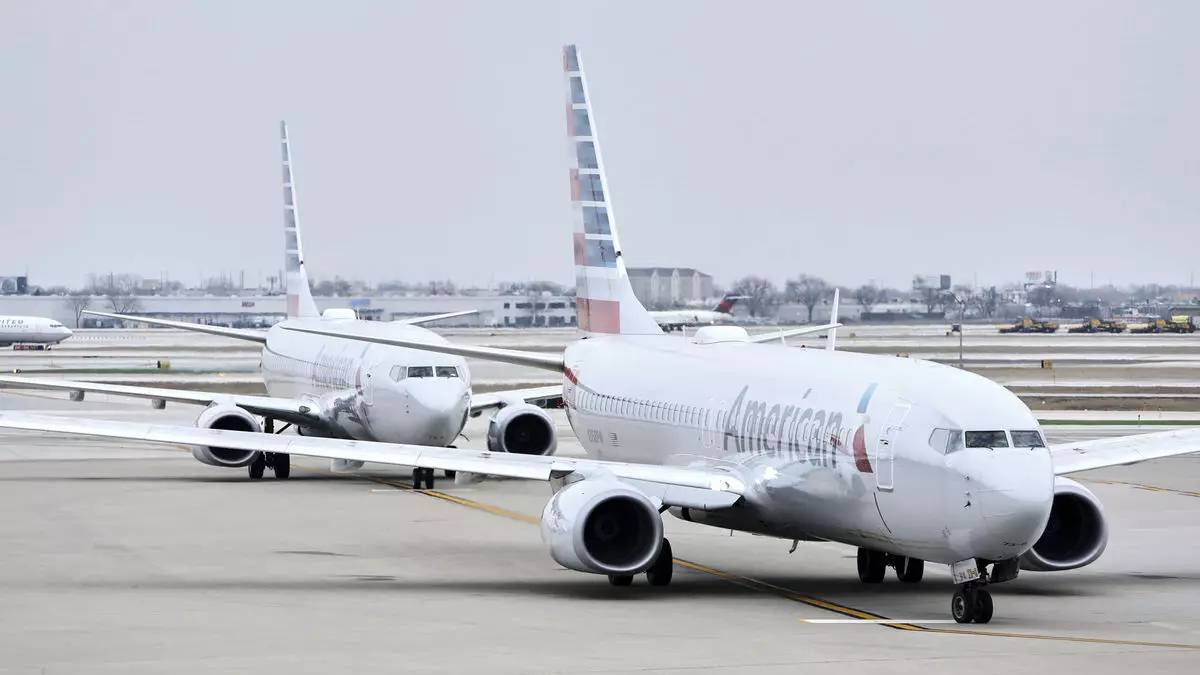American Airlines, a key player in the aviation industry, is taking substantial steps to regain its footing in a highly competitive market. With the intention of revitalizing its corporate sales division, the airline is not only attempting to reclaim its lost share among corporate clients but also to reignite its relationship with travel agencies that had been strained in recent years. Under the leadership of Scott Laurence, American’s vice president of partnerships and retailing, the airline is making a strategic pivot aimed at fostering a more robust sales ecosystem which is essential for maintaining competitiveness in the airline industry.
This renewed effort comes after American Airlines closed its corporate sales division in September 2023, a decision that was perceived as a misguided effort to reduce costs by eliminating travel agency channels. The initial strategy of promoting direct bookings through the use of New Distribution Capability (NDC) was deemed unsuccessful, as it failed to deliver the expected results and has now triggered a re-evaluation of its overall sales approach.
The move to reinstate the global sales division reflects American Airlines’ acknowledgment of the missteps taken in their previous strategy. A major catalyst for this pivot was the realization that neglecting travel agencies and leaning solely on direct sales would have financial repercussions—in fact, CEO Robert Isom projected a staggering $1.5 billion loss in revenue for the airline this fiscal year due to this miscalculation. This moment of reckoning has prompted a strategic overhaul, with American enrolling Scott Mabry and Jim Carter, former sales executives who had departed during the restructuring, as consultants to rebuild the corporate sales framework.
The corporate sales team’s headcount has notably risen by 20% since May, signaling a strong commitment to rebuilding the division back to its competitive state. Despite the efforts, Laurence has indicated that even when fully restructured, the team will be smaller than the pre-pandemic setup; however, it will aim for functionality in alignment with the competitive sales divisions of other major airlines such as Delta and United.
Central to American Airlines’ renewed corporate strategy is the reintroduction of the Corporate Experience program set to take effect on October 10. This initiative eliminates the barriers to accessing various travel benefits such as preferred seat selection and expedited security for employees traveling under active corporate contracts. The reinstatement of these perks represents more than just a response to client demands; it symbolizes a fundamental shift in American’s approach towards recognizing the importance of travel agency partnerships.
From the reversal of the decision to scrap the AAdvantage Business incentive program to the continuation of travel agency commissions, the airline is being mindful of its audience’s needs and demonstrating a willingness to adjust its policies accordingly. These measures are indicative of a broader strategy aimed at rebuilding trust and loyalty among corporate clients.
American Airlines is also making a concerted effort to engage with emerging technologies, particularly with its enhanced focus on NDC. Initially viewed as a tool for accelerating direct sales, NDC is now seen as an integral part of the overall distribution strategy that combines both direct and agency-driven bookings. The extension of the 10% commission on NDC bookings through the end of the year highlights the airline’s intention to promote and utilize this technology effectively.
As Laurence articulates, “Continuous pricing is where the industry is going,” suggesting that American Airlines is exploring innovative ways to provide value to both customers and travel advisors by leveraging advanced pricing models. The airline’s challenge will be in bridging its operations with travel agencies that have traditionally relied on legacy Global Distribution Systems (GDS), which do not support the flexibility that NDC offers.
Looking ahead, American Airlines faces the dual challenge of navigating the complexities of market demands while stabilizing its newly formed sales strategies. Laurence is optimistic yet realistic about the hurdles that lie ahead, acknowledging both the progress made and the significant work remaining in order to reclaim market share lost to competitors.
As the airline industry continues to evolve, the strategic decisions made by American Airlines will play a critical role in determining its resilience. With a focus on customer-centered approaches, innovative technology usage, and rejuvenated partnerships with travel agents, American is poised to re-enter the competitive fray with renewed vigor and a revamped game plan. The momentum gained from these reforms, if maintained with diligence, could serve as a significant advantage in an industry that is ever-changing and influenced by consumer behaviors.


Leave a Reply